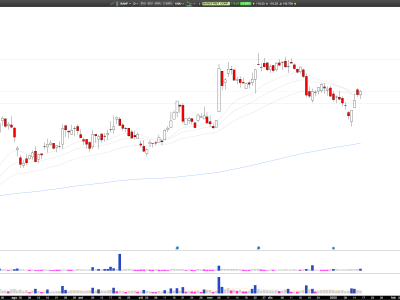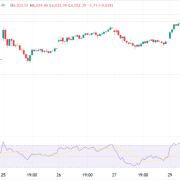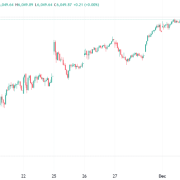
Hindenburg Research, the prominent US-based short-selling firm known for targeting high-profile companies such as the Adani Group, is set to be disbanded, according to its founder, Nate Anderson.
In a statement published on the firm’s website, Anderson said, “I have made the decision to disband Hindenburg Research. The plan has been to wind up after we finished the pipeline of ideas we were working on.”
The announcement, notably timed just days before Donald Trump’s inauguration, also addressed potential speculation about the reasons behind the decision.
Anderson clarified that the move was not prompted by any specific threats or personal issues.
This decision marks the end of a controversial but impactful chapter in the financial world, as Hindenburg’s investigations have often led to significant market and regulatory fallout for the companies it scrutinized.
Hindenburg Research has targeted companies it believes are involved in deceptive practices, mismanagement, or fraud.
Its reports typically result in sharp stock price declines, regulatory investigations or lawsuits, and resignations of key executives.
While some companies manage to recover from the fallout, others struggle to regain investor trust, illustrating the significant influence of Hindenburg’s reports on market dynamics.
Invezz takes a look at how the firm took on global giants and firms alike with its investigations and the impact they had on the companies:
1. Adani Group (India)
In January 2023, Hindenburg accused the Adani Group of engaging in a decades-long pattern of stock manipulation, accounting fraud, and misgovernance.
The report alleged that the conglomerate used offshore shell companies controlled by close associates to artificially inflate stock prices and hide debt.
Hindenburg also pointed to questionable corporate governance practices, claiming that family members held key positions in many firms, leading to conflicts of interest.
The allegations caused a sharp decline in Adani Group stocks, wiping out over $100 billion in market capitalization.
The group denied the accusations, calling the report malicious and defamatory, but investor sentiment was significantly affected.
It released another report in August last year, this time accusing the chairperson of the Indian market regulator SEBI- Madhabi Puri Buch- of having held stakes in offshore funds that had links with the Adani Group.
The fresh set of accusations further dented Adani Group’s fortunes, which had recovered from the earlier losses by then, and even echoed in the Parliament, with the opposition demanding a joint parliamentary committee probe.
Adani Group companies’ shares rose as much as 9% on Thursday after the announcement of Hindenburg’s closure.
2. Nikola Corporation (US)
Hindenburg, in a September 2020 report titled “Nikola: How to Parlay an Ocean of Lies into a Partnership with the Largest Auto OEM in America”, claimed that Nikola released a promotional video of its hydrogen-powered semi-truck, the Nikola One, misleading viewers into believing it was fully operational.
The report claimed that the truck was non-functional and the video was staged by rolling the truck downhill.
The report accused Nikola and its founder, Trevor Milton, of overstating the company’s technological capabilities.
Hindenburg alleged that Nikola had little proprietary technology and was instead outsourcing components, contrary to the company’s claims.
It also alleged that Nikola misled investors about partnerships with major companies.
It claimed that many of these partnerships were either exaggerated or nonexistent, designed to boost Nikola’s stock price.
The US Securities and Exchange Commission (SEC) and the Department of Justice (DOJ) launched investigations. Milton was eventually convicted on fraud charges.
Nikola’s stock plummeted by over 40% in the days following the report, pulling its valuation down, and the company’s credibility suffered.
3. Block, Inc. (formerly Square, US)
In March 2023, Hindenburg released a scathing report titled “Block: How Inflated User Metrics and ‘Frictionless’ Fraud Enabled Insiders to Cash Out Over $1 Billion”, accused Block of inflating user metrics by counting fake or duplicate accounts as active users.
The report also alleged that Block’s Cash App platform facilitated fraud, including criminal activities such as identity theft and unemployment benefit fraud during the COVID-19 pandemic.
The report also highlighted that Block insiders, including co-founders Jack Dorsey and James McKelvey, sold over $1 billion in company stock during the pandemic.
Hindenburg suggested that these insider sales occurred while the platform faced significant issues with fraudulent activity.
Block denied the allegations, calling the report “inaccurate and misleading,” but the stock saw a sharp decline, and concerns about fraud risks on fintech platforms were amplified.
4. Clover Health (US)
Hindenburg revealed that Clover Health failed to disclose a Department of Justice investigation into its business practices, including its use of marketing agents.
It also accused Clover of misleading investors about its product capabilities and market penetration.
The stock price fell sharply, and the company faced increased scrutiny from regulators and investors. Although Clover denied wrongdoing, the report damaged its reputation.
5. Lordstown Motors (US)
Hindenburg accused the electric vehicle maker of fabricating pre-order numbers for its trucks to inflate its market appeal.
It also alleged that the company was far from achieving production targets and was facing serious financial and operational issues.
Following the report, Lordstown’s CEO and CFO resigned, and the company struggled to regain investor confidence.
Lordstown has since faced lawsuits and financial difficulties, including bankruptcy concerns.
6. Kandi Technologies (China)
Hindenburg accused Kandi of overstating revenue by conducting fake sales to affiliated companies.
The report alleged that nearly 70% of Kandi’s reported revenue came from such transactions, effectively creating a circular flow of money to mislead investors.
Kandi denied the allegations, but the stock price took a hit, and the report raised broader concerns about financial transparency among Chinese companies listed in the US.
7. DraftKings (US)
Hindenburg claimed that DraftKings’ subsidiary SBTech operated in gray markets, potentially engaging in illegal gambling activities.
The report also alleged that the company’s ties to these markets posed regulatory and money-laundering risks.
DraftKings’ stock fell immediately after the report. While the company denied the allegations, questions about its compliance and market practices persisted.
8. Okta (US)
Hindenburg accused Okta, a cybersecurity firm, of concealing operational weaknesses, including losing key clients and failing to address growing security risks.
The report questioned the company’s transparency in disclosing these issues.
Okta refuted the claims, but the report led to increased skepticism among investors about the company’s long-term prospects and operational health.
The post Hindenburg Research shutting down: here are 8 companies that the short seller took on appeared first on Invezz









